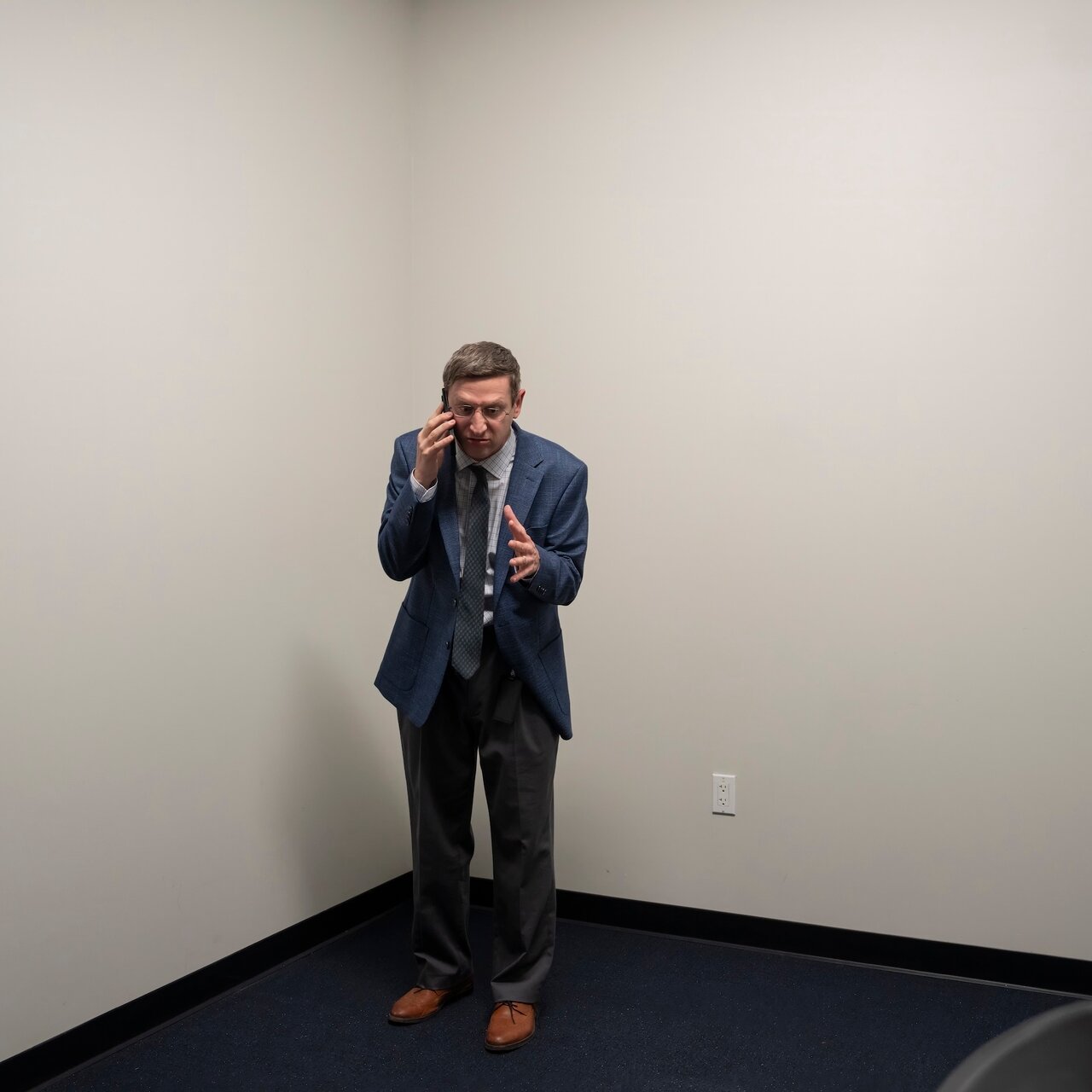Very few TV shows can maintain a 100% Rotten Tomatoes score while delivering the most absurd lines and unjustifiably dramatic plot imaginable. But then again, very few shows are written by Tim Robinson and Zach Kanin.
Gloriously ridiculous and so far overblown is The Chair Company, the new limited series written by the duo and fronted by Tim Robinson, who is singular in his physicality and line-delivery. The show follows William Ronald Trosper (Robinson) as he becomes hellbent on investigating a negligent chair company, following it to the squalid depths of strangeness without his family or work finding out.
This is a more dramatic and stylised series compared to Robinson and Kanin’s previous collaborations. Known best for I Think You Should Leave, the extremely quotable sketch show, Robinson, especially, has been successful in creating a distinctive cringeworthy comedy style that constantly walks the line between delight and discomfort. Detroiters, too, is a great showcase of the odd and awkward humour that the writing duo cultivate.
But The Chair Company is a new, more sophisticated turn in their work; it’s more narrative-driven and polished, dipping into noir-esque thriller territory. This week, season 2 of the comedy was confirmed by HBO, a network that has clearly understood the promising appeal of Robinson and Kanin’s bold and ridiculous humour in this refined format.
Season 1 comes just months after Friendship, the Andrew Deyoung-directed comedy, in which Robinson’s delightfully unbearable humour really gains traction. Not too far from his Chair Company character, the comedian plays a fairly successful father and husband, who becomes disturbingly obsessed with his cool neighbour Austin, played by Paul Rudd. Shaped entirely around the physicality and delivery that Robinson holds so uniquely, the character of Craig Waterman is cringeworthy, awkward and utterly enraging. But all of these qualities are somehow wrapped up in a well-meaning unintentionality that slightly redeems him. Really, it’s a story about loneliness and inadequacy at their extremes and by the end, you find it hard to blame Waterman for the sheer desperation of his actions.
In Friendship, as in The Chair Company, there’s a comfort in Robinson’s discomfort; something about the degree to which anything he does is so much worse than anything you could possibly do. Awkward interaction with your boss? A joke that didn’t land? At least you didn’t walk into an acquaintance’s glass door or lose your shoes – and phone – in a mud puddle. Sometimes it isn’t even the things that Robinson’s characters do, but rather how awfully they react afterwards, that just drag along the pain and embarrassment, like in The Chair Company, which only unfurls as a result of William Trosper’s embarrassment. It is somehow consoling to see the worst-case scenario played out, and to know that you aren’t involved.
There is a relatability to these characters’ social ineptitude that also extends far beyond the general, unavoidable awkwardness of the human experience. Robinson and Kanin’s projects are comfortable torture, a laugh-out-loud, quotable series of exposure therapy.
What they all often share, too, is their focus on the workplace. Often serving as the setting of sketches and some of the best scenes in The Chair Company, the liminal space of the office is one Robinson and Kanin hone in on. Perhaps it’s the general unease of office life, or the odd mix of people you’re forced to interact with, but it makes sense that the workplace would be a hotbed for such mortification. The pair manage to tap into the simultaneous mundanity and strangeness of this environment, one where you’re forced to know and interact with people you never usually would, and they harvest the odd and awkward exchanges that come out of that. In The Chair Company, as in Friendship, I Think You Should Leave, and Detroiters, there is an understanding of the human condition that is pushed to the outer bounds of social discomfort.
It’s this mastery of social tension, whether in the office, the home, or wherever Trosper finds himself, that makes The Chair Company so compelling. And it is Tim Robinson’s profound and ludicrous performance that makes it simultaneously unbearable and hilarious. Chaotic, cringey, yet somehow charming, the series is an excellent showcase of Robinson and Kanin’s unique comedic vision.
The final episodes of The Chair Company will air soon, putting a temporary end to the deranged spiral of social disasters that only Tim Robinson could enact so well.





















